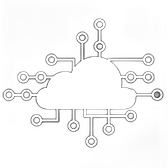-
How to Deploy a Helm Chart in Minikube Using Terraform
Minikube is a lightweight Kubernetes implementation that runs a single-node cluster on your local machine. It’s an excellent environment for testing and developing Kubernetes applications before deploying them to a larger, production-level Kubernetes cluster. Helm is a package manager for Kubernetes, and Terraform is an Infrastructure as Code (IaC) tool that can automate the deployment […]
-
Introduction to Sentry
Sentry is an open-source application monitoring platform that helps developers identify and fix issues in real time. It provides error tracking and performance monitoring for various applications, allowing teams to quickly understand the root cause of bugs and resolve them efficiently. Key Features of Sentry Setting Up Sentry To get started with Sentry, you can […]
-
How to Deploy Helm Charts on Google Kubernetes Engine (GKE)
How to Deploy Helm Charts on Google Kubernetes Engine (GKE) Helm is a package manager for Kubernetes that simplifies the process of deploying, upgrading, and managing applications on your Kubernetes clusters. By using Helm charts, you can define, install, and upgrade even the most complex Kubernetes applications. In this article, we’ll walk through the steps […]
-
Exploring Grafana, Mimir, Loki, and Tempo: A Comprehensive Observability Stack
In the world of cloud-native applications and microservices, observability has become a critical aspect of maintaining and optimizing system performance. Grafana, Mimir, Loki, and Tempo are powerful open-source tools that form a comprehensive observability stack, enabling developers and operations teams to monitor, visualize, and troubleshoot their applications effectively. This article will explore each of these […]
-
The Evolution of Terraform Project Structures: From Simple Beginnings to Enterprise-Scale Infrastructure
As you embark on your journey with Terraform, you’ll quickly realize that what starts as a modest project can evolve into something much larger and more complex. Whether you’re just tinkering with Terraform for a small side project or managing a sprawling enterprise infrastructure, understanding how to structure your Terraform code effectively is crucial for […]
-
How to Launch a Google Kubernetes Engine (GKE) Cluster Using Terraform
How to Launch a Google Kubernetes Engine (GKE) Cluster Using Terraform Google Kubernetes Engine (GKE) is a managed Kubernetes service provided by Google Cloud Platform (GCP). It allows you to run containerized applications in a scalable and automated environment. Terraform, a popular Infrastructure as Code (IaC) tool, makes it easy to deploy and manage GKE […]
-
How to Launch a Google Kubernetes Engine (GKE) Autopilot Cluster Using Terraform
How to Launch a Google Kubernetes Engine (GKE) Autopilot Cluster Using Terraform Google Kubernetes Engine (GKE) Autopilot is a fully managed, optimized Kubernetes experience that allows you to focus more on your applications and less on managing the underlying infrastructure. Autopilot automates cluster provisioning, scaling, and management while enforcing best practices for Kubernetes, making it […]
-
How to Launch Virtual Machines (VMs) on Google Cloud Platform Using Terraform
Terraform is a powerful Infrastructure as Code (IaC) tool that allows you to define and provision your cloud infrastructure using a declarative configuration language. This guide will walk you through the process of launching Virtual Machines (VMs) on Google Cloud Platform (GCP) using Terraform, making your infrastructure setup reproducible, scalable, and easy to manage. Prerequisites […]
-
How to Start with Google Cloud Platform (GCP): A Beginner’s Guide
How to Start with Google Cloud Platform (GCP): A Beginner’s Guide Starting with Google Cloud Platform (GCP) can seem daunting due to its extensive range of services and tools. However, by following a structured approach, you can quickly get up to speed and begin leveraging the power of GCP for your projects. Here’s a step-by-step […]
-
Introduction to Google Cloud Platform (GCP) Services
Google Cloud Platform (GCP) is a suite of cloud computing services offered by Google. It provides a range of services for computing, storage, networking, machine learning, big data, security, and management, enabling businesses to leverage the power of Google’s infrastructure for scalable and secure cloud solutions. In this article, we’ll explore some of the key […]

